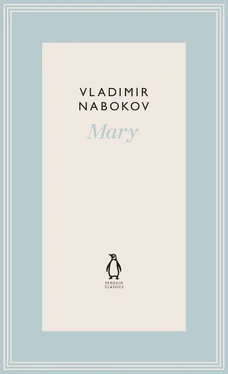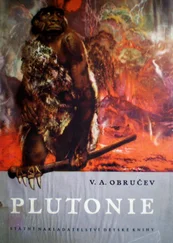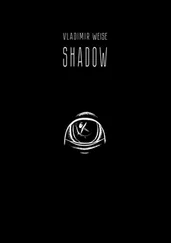Halfway to it his hand stopped, he shook his head, then with a slack smile said to Ganin, ‘Mustn’t have any more. Mary’s coming.’
After a while he shook Ganin’s arm. ‘Hey, you, what’s your name — Leb Lebovich — d’you hear — Mary —’
Ganin exhaled the smoke and stared hard into Alfyorov’s face. He took it all in at once: the wet, half-open mouth, the little dung-colored beard, the watery blinking eyes.
‘Listen, Leb Lebovich’ — Alfyorov swayed and grabbed him by the shoulder. ‘Right now I’m dead drunk, canned, tight as a drum. They made me drink, damn ’em — no, that’s not it — I wanted to tell you about the girl —’
‘You need a good sleep, Aleksey Ivanovich.’
‘There was a girl, I tell you. No, I’m not talking about my wife — my wife’s pure — but I’d been so many years without my wife. So not long ago — no, it was long ago — can’t remember when — girl took me up to her place. Foxy-looking little thing — such filth — and yet delicious. And now Mary’s coming. D’you realize what it means? D’you realize or not? I’m drunk — can’t remember how to say perp — purple — perpendicular and Mary’ll be here soon. Why did it all have to happen like this? Eh? I’m asking you! You, you damn Bolshevik! Can you tell me why?’
Ganin gently pushed away his hand. Head nodding, Alfyorov leaned forward over the table; his elbow slipped, rumpling the tablecloth and knocking over the glasses. The glasses, a saucer and the watch slid to the floor.
‘Bed,’ said Ganin and jerked him violently to his feet.
Alfyorov did not resist, but he was so unsteady that Ganin could hardly make him walk in the right direction.
Finding himself in his own room, he gave a broad, sleepy grin and collapsed slowly onto the bed. Suddenly horror crossed his face.
‘Alarm clock —’ he mumbled, sitting up. ‘Leb — over there, on the table, alarm clock — set it for half-past seven.’
‘All right,’ said Ganin, and began moving the hand. He set it for ten o’clock, then changed his mind and set it for eleven.
When he looked at Alfyorov again the man was already sound asleep, flat on his back with one arm oddly thrown out.
This was how drunken tramps used to sleep in Russian villages. All day in the shimmering, sleepy heat tall laden carts had swayed past, scattering the country road with bits of hay — and the tramp had lurched noisily along, pestering girl vacationists, beating his resonant chest, proclaiming himself the son of a general and finally, slapping his peaked cap to the ground, he had lain down across the road, and had stayed there until a peasant climbed down from his hay wagon. The peasant had dragged him to the verge and driven on; and the tramp, turning his pale face aside, had lain like a corpse on the edge of the ditch while the great green bulks, swaying and sweet-smelling, had glided past, through the dappled shadows of the lime trees in bloom.
Putting the alarm clock noiselessly down on the table, Ganin stood for a long time looking at the sleeping man. Then jingling the money in his trouser pocket he turned and quietly went out.
In the dim little bathroom next to the kitchen, briquettes of coal were piled up under a piece of matting. The pane of the narrow window was broken, there were yellow streaks on the walls, the metal shower head curved, whiplike, out from the wall above the black, peeling bathtub. Ganin stripped naked and for several minutes stretched his arms and legs — strong, white, blue-veined. His muscles cracked and rippled. His chest breathed deeply and evenly. He turned on the tap of the shower and stood under the icy, fan-shaped stream, which produced a delicious contraction in his stomach.
Dressed again, tingling hotly all over, trying not to make any noise, he dragged his suitcases out into the hallway and looked at his watch. It was ten to six.
He threw hat and coat on top of the suitcases and slipped into Podtyagin’s room.
The dancers were asleep on the divan, leaning against each other. Klara and Lydia Nikolaevna were bending over the old man. His eyes were shut, and his face, the color of dried clay, was occasionally distorted by an expression of pain. It was almost light. The trains were rumbling sleepily through the house.
As Ganin approached the bed-head, Podtyagin opened his eyes. For a moment in the abyss into which he kept falling his heart had found some shaky support. There was so much that he wanted to say — that he would never see Paris now, still less his homeland, that his whole life had been stupid and fruitless, and that he didn’t know why he had lived, or why he was dying. Rolling his head to one side and glancing perplexedly at Ganin he muttered, ‘You see — without any passport.’ Something like faint mirth twisted his lips. He screwed up his eyes again and once more the abyss sucked him down, a wedge of pain drove itself into his heart — and to breathe air seemed to be unspeakable, unattainable bliss.
Ganin, gripping the edge of the bed with a strong white hand, looked in the old man’s face, and once again he remembered these flickering, shadowy doppelgängers, the casual Russian film extras, sold for ten marks apiece and still flitting, God knows where, across the white gleam of a screen. It occurred to him that Podtyagin nevertheless had bequeathed something, even if nothing more than the two pallid verses which had blossomed into such warm, undying life for him, Ganin, in the same way as a cheap perfume or the street signs in a familiar street become dear to us. For a moment he saw life in all the thrilling beauty of its despair and happiness, and everything became exalted and deeply mysterious — his own past, Podtyagin’s face bathed in pale light, the blurred reflection of the window frame on the blue wall and the two women in dark dresses standing motionless beside him.
Klara noticed with amazement that Ganin was smiling, and she could not understand it.
Smiling, he touched Podtyagin’s hand, which barely twitched as it lay on the sheet, straightened up and turned to Frau Dorn and Klara.
‘I’m leaving now,’ he whispered. ‘I don’t suppose we shall meet again. Give my regards to the dancers.’
‘I’ll see you out,’ said Klara as quietly, and added, ‘The dancers are asleep on the divan.’
And Ganin went out of the room. In the lobby he picked up his suitcases and threw his mackintosh over his shoulder, and Klara opened the door for him.
‘Thank you very much,’ he said, sidling out onto the landing. ‘Good luck.’
For a moment he stopped. Already the day before he had momentarily thought it would be a good idea to explain to Klara that he had never had any intention of stealing money but had been looking at old photographs; yet now he could not remember what he had meant to say. So with a bow he set off unhurriedly down the staircase. Klara, holding the door handle, watched him go. He carried his suitcases like buckets and his heavy footfalls made a noise on the stairs like a slow heartbeat. Long after he had disappeared round the turn of the banisters she stood and listened to that steady, diminishing tap. Finally she shut the door, stood for a moment in the hallway. She repeated aloud, ‘The dancers are asleep on the divan,’ and suddenly burst into soundless but violent sobs, running her index finger up and down the wall.
The thick, heavy hands on the huge white clockface that projected sideways from a watchmaker’s sign showed twenty-four minutes to seven. In the faint blue of the sky that had still not warmed up after the night, only one small cloud had begun to turn pink, and there was an unearthly grace about its long, thin outline. The footsteps of those unfortunates who were up and about at this hour rang out with especial clarity in the deserted air and in the distance a fleshy pink light quivered on the tram tracks. A small cart, loaded with enormous bunches of violets half covered with a coarse striped cloth, moved slowly along close to the curb, the flower-seller helping a large red-haired dog to pull it. Its tongue hanging out, the dog was straining forward, exerting every one of its sinewy muscles devoted to man.
Читать дальше










